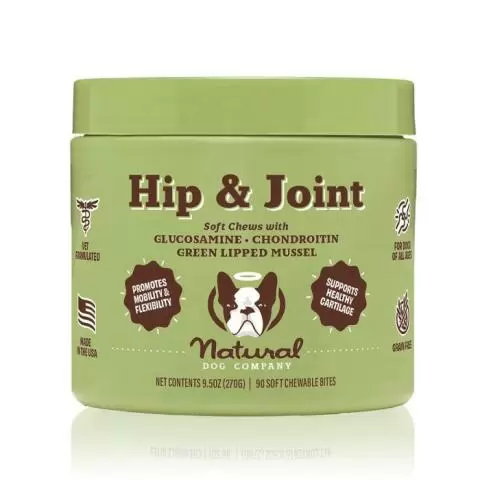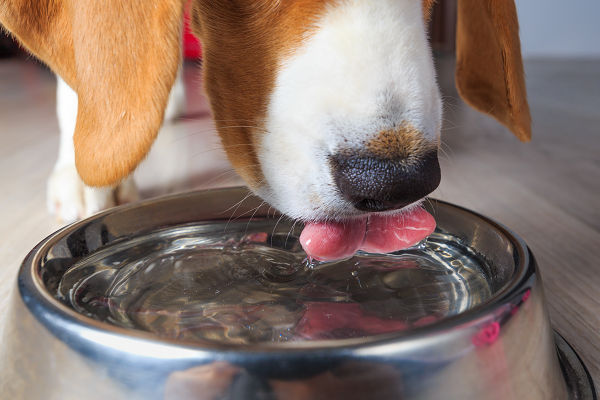Good Advice On Deciding On Dog Herbalist
Good Advice On Deciding On Dog Herbalist
Blog Article
How Can Omega-3 Fatty Acids Aid Joint Health In Both Cats And Dogs?
Omega-3 fatty acid, specifically EPA (eicosapentaenoic) and DHA(docosahexaenoic) is an important role in maintaining and improving joint health for cats and dogs. How they function:
Anti-inflammatory properties
Reduce Inflammation
Function Omega-3 fat acids possess powerful anti-inflammatory properties. They block the proinflammatory cytokines, Eicosanoids, and other molecules that cause inflammation.
Omega-3s are able to reduce inflammation and ease swelling in the joints. This is advantageous for arthritis-related conditions. This can make movement more comfortable for pets, improving their quality of life.
Joint Lubrication and Health
Improvement of Joint Lubrication:
Function The omega-3 fatty acid helps maintain the health synovial, the fluid which helps to lubricate our joints.
Benefits: Better lubrication results in smoother joints, less friction and reduced wear on cartilage. This is particularly beneficial for pets that have joint issues or might develop one.
Cartilage Protection and Repair
Cartilage Protection:
Function Omega-3s can benefit cartilage because they reduce the activity enzymes that cause cartilage degradation.
The benefits of protecting cartilage It assists in maintaining joint health by preventing degrading and slowing the progression of osteoarthritis.
Immune System Support
Immune System Regulation:
Function: Omega-3 fatty acids help regulate the immune system, promoting a balanced inflammatory response.
Benefits: A healthy immune system that's well-controlled will help in reducing joint problems. This will prevent excessive inflammation and joint damage.
Comfort and Mobility Enhanced
Better Mobility
Omega-3s may help your pet get around more easily by reducing inflammation and helping maintain joint structures.
Benefits: Pets with health issues, such as elderly ones or those with arthritis, often show improved mobility as well as less pain leading to a more active and comfortable life.
Additional Health Benefits
Overall Health
Function: Omega-3 fat acids can be beneficial to the health of your pet's skin, coat and cardiovascular system.
Benefits : A healthy pet will likely be more energetic and will have better joints over time.
Considerations for Use
Dosage & Administration: The amount of Omega-3s to administer will depend on the weight of your pet size, health and condition. Follow the directions on the label or those provided by your vet.
Omega-3s are available from supplements with fish oil. They are a fantastic source of EPA and DHA. To ensure safety and effectiveness, it is important to use products that have been specifically designed for pets.
Omega-3 supplements have a generally positive effect for animals. However, certain pets may develop gastrointestinal issues and/or fishy breath. To avoid any adverse effects, begin by taking a small dose, and then gradually increase the dosage.
Conclusion
Omega-3 fatty acids are beneficial to joint health in both dogs and cats. Their anti-inflammatory qualities, ability enhance joint fluidity, protect cartilage, and boost the immune system, which contributes to improved joint functions and reduced pain. Regular supplementation can lead to better mobility and a healthy, active lifestyle for pets. View the top rated collagen for dogs examples for blog examples including pet oregano supplements, pet supplements for pets with skin conditions, pet dental health, mcdowells herbal, premium quality pet supplements, pet nutrition, pet supplements for pets with fear of shadows, pet supplements for pets with fear of anesthesia and more.
Coconut Oil Can Help Dogs And Cats Who Suffer From Skin Allergies.
Coconut oil can be a natural remedy to help animals and cats who suffer from allergies to skin. It is due to its anti-inflammatory, healing, and antimicrobial properties. Coconut oil is a natural remedy that can aid pets suffering from allergies.
Moisturizing Properties
Skin Hydration
Use: Coconut oil is an excellent moisturizer that can penetrate the skin easily.
Benefits: Hydrates dry skin that is flaky and itchy. It soothes itching and creates a more hygienic skin barrier. This is especially beneficial for pets suffering from dermatitis allergic that can cause dry and itchy skin.
Anti-inflammatory effects
Reduce inflammation:
Coconut oil contains a substance called lauric Acid, which is an anti-inflammatory.
Benefits Coconut oil applied to affected areas can reduce swelling, redness, and irritation that can be caused by skin allergies. It can also provide relief for pets that are suffering from allergies.
Antimicrobial activity
Combating Infections
Function The two acids, namely caprylic and lauric acid in coconut oil have antimicrobial properties which help to fight bacteria, viruses and fungi.
Coconut oil is a natural remedy for secondary infections of the skin which are usually caused by allergies and itching. This aids in maintaining the overall health of your skin and prevents any further problems.
Healing and Soothing
Promoting Healing
Coconut oil promotes the natural healing process of skin.
Benefits. It helps treat minor cuts or scratches. This helps speed up the healing process of the skin that has been damaged by allergies.
Barrier Protection
Enhancing Skin Barrier:
Coconut oil is a natural moisturizing agent that helps strengthen the barrier to skin.
Benefits: Having a stronger skin barrier can reduce allergic reactions and the chance of infection.
Dietary Supplements
Internal Benefits:
Coconut oil is used in a variety of applications. It is used as an ingredient in food supplements.
Benefits: It can help maintain the health of your skin from the inside. Its anti-inflammatory and antimicrobial properties can aid in reducing inflammation throughout the body and enhance the immune system of pets, potentially reducing the incidence of skin allergies.
Considerations and Usage
Topical Application: Apply small amounts of coconut oil directly to the areas that are affected on the skin. Massage gently to ensure that it is absorbed. Repeat this procedure once or even twice daily according to the condition of your skin.
Oral Supplementation: Coconut oil can be added to pet food. The usual dosage for coconut oil is 1 teaspoon per 10 pounds of body weight. It is important to start with a small amount and increase it slowly to ensure that there is no stomach upset.
Coconut Oil: Use virgin coconut oil of high quality, organic and free from preservatives.
Check for reactions - Although coconut oil generally is safe, keep an eye on your pet's health to determine the possibility of any adverse reactions. This can include diarrhea, vomiting, or skin irritation if it has been applied on the skin.
Also, you can read our conclusion.
Coconut oil can be an effective natural remedy for combat skin allergies in both cats and dogs. Its moisturizing anti-inflammatory antimicrobial healing properties help soothe and protect your skin. They help reduce inflammation and itching. Coconut oil is an excellent way to relieve allergy symptoms. It can also be taken as a nutritional supplement. See the recommended here are the findings about pet wellbeing for site examples including pet anxiety supplements, pet papain supplements, pet joint supplements, pet supplements for adopted pets, herbal pet treatments, natural remedies for dog, dog vitamins, pet quercetin supplements and more.
How Can Cat And Dog Yeast Infections Helped With Apple Cider Vinegar?
ACV (apple cider vinegar) is frequently recommended as a treatment for yeast-related infections in cats and dogs. Acidity in ACV can lead to negative side effects, so it should not be recommended without veterinary supervision. ACV can be used to treat yeast infections.
Antifungal Properties
Acidic Environment
ACV's acidity ranges from 2.5-3.0 pH. It is a hostile environment for yeast growth.
Benefits of applying ACV or adding diluted ACV to the bathwater of your pet may reduce the yeast overgrowth in the ear and skin.
Skin pH Regulation
Balancing Skin pH:
The function: ACV is believed to aid in balancing the pH of skin levels, which can support a healthy skin barrier and reduce yeast growth.
Benefits - Keeping an appropriate pH balance for the skin is a fantastic way to avoid yeast infections and maintain overall skin health.
Anti-inflammatory properties
Reduction of Inflammation
ACV contains mild anti-inflammatory effects.
Benefits: The reduction of inflammation can help alleviate symptoms such as redness itching and discomfort that can be associated with yeast infections.
Support for Digestive Health
Internal Use
ACV could help improve digestive health and assist in balancing the gut microbiome when consumed.
Benefits: A healthier gut environment could indirectly limit yeast overgrowth through supporting overall immune function and microbial balance.
Usage and aspects
Topical Application: Apply ACV diluted with water (typically 1 part ACV for 1-2 parts of water) or spray or rinse on the affected areas of the skin or ears. Avoid direct application on open wounds or to sensitive skin.
Consult a vet before considering any usage for internal use. ACV should be dilute with water (e.g. 1 teaspoon or 1 tablespoon per cup) and taken in small amounts.
If you apply ACV topically make sure to look out for indications of irritation or allergic reactions. Stop use if adverse reactions develop.
A consultation with a veterinarian Prior to using ACV as a treatment for yeast infections, you should consult with your vet. Your veterinarian will advise you on the best dilution method as well as the proper method of application and any possible risks in relation to your pet's health.
Click here to view the entire article. Click here to view the full
Apple cider vinegar can be utilized to treat yeast infections in dogs and cats However, it should be performed under the supervision of a veterinarian. ACV is acidic, which could create an environment that doesn't encourage yeast growth. It could also possess mild antiinflammatory effects. However, proper dilution and cautious application are vital to avoid irritation and adverse reactions. ACV is safe and effective when used under veterinary supervision as part of a comprehensive treatment plan for yeast infections in pets. Have a look at the top yeast infections in dogs info for site advice including pet wellness supplements, pet milk thistle supplements, pet glucosamine-chondroitin supplements, pet supplements for pets with fear of needles, urinary infection in dogs, natural pet remedies, pet supplements for pets with fear of stairs and steps, pet supplements for pets with fear of strangers and more.